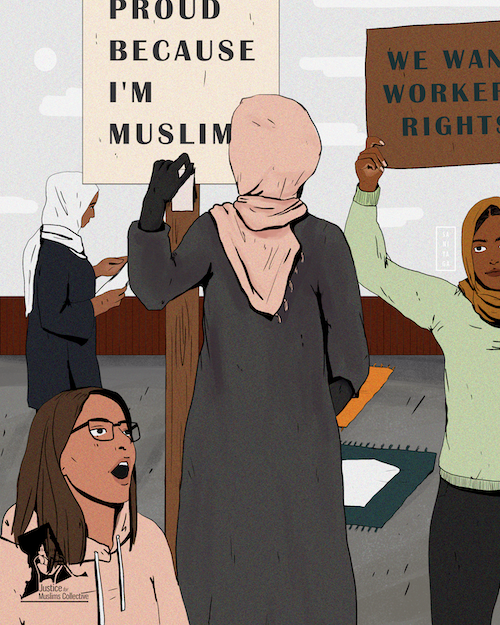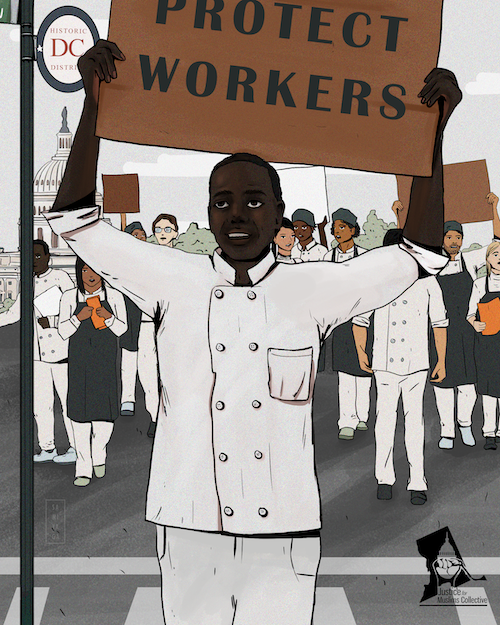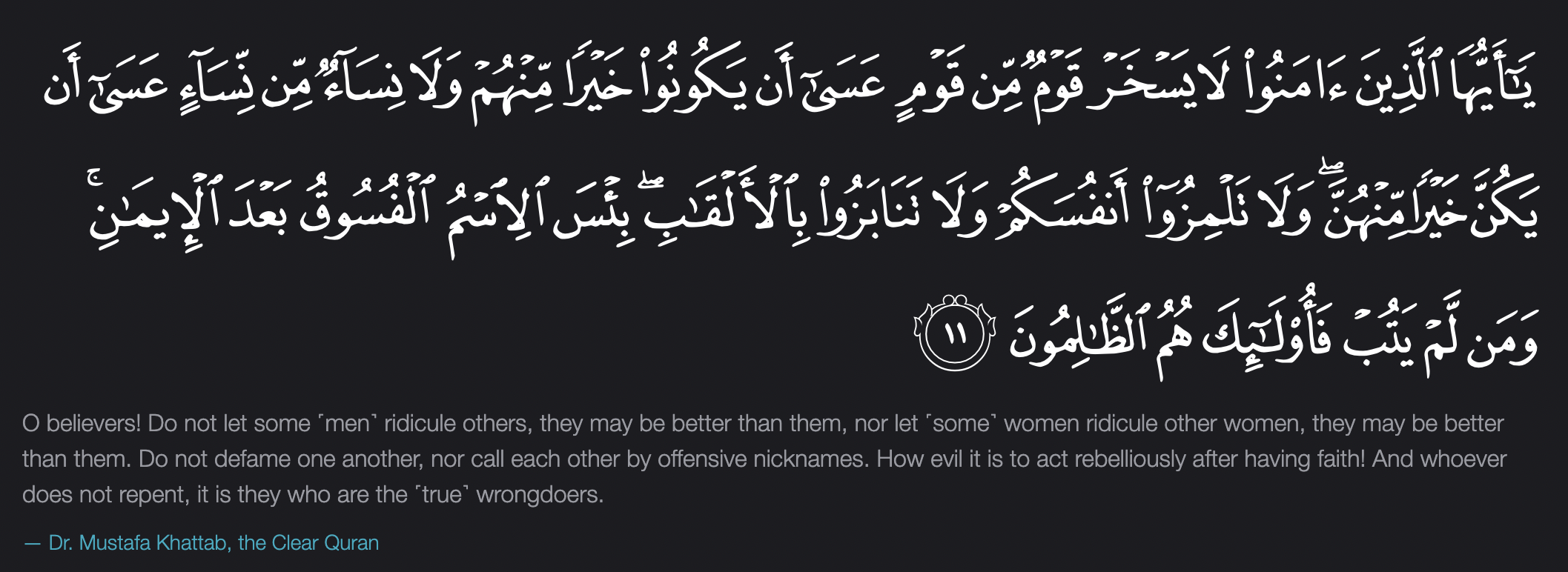Muslim immigrant workers are essential workers who remain an integral part of the backbone of Washington, D.C. In late 2020 and early 2021, we conducted oral and visual histories of five Muslim immigrant workers through the DC Oral History Collaborative for inclusion in the city’s official records. These interviews focus on how the workers are treated at their workplace, the obstacles and discrimination they face, and their journeys of joining and participating in labor movements. We have excerpted passages from these interviews and organized them into the following exhibit themes.
EXHIBIT
Muslim Immigrant Workers of Washington, DC
Jump to a section:
Meet the Workers | Courageous Faith | Muslim Labor | Dominant Systems | Future Visions
Ahmad | Born in Afghanistan, Ahmed immigrated in 2019 to the United States with his family. Ahmed lives with his wife, two sons, and three daughters. He first worked at Giant before becoming a food deliverer for Doordash and Postmates. After the pandemic caused many people to lose their jobs, Ahmed organized with other Afghan workers to help each other through this difficult period.
Hayat | Born in Eritrea, Hayat grew up in Saudi Arabia. Although she was living a good life in Saudi Arabia, Hayat decided to move to America to build a better life for herself. She first began working at a gas station in the D.C. area, but eventually found work at a government museum. She faced discrimination at work from her coworkers which led her to organize and stand up for herself. Hayat works at a labor union where she uses her skills to help others know their rights and advocate for themselves.
Ismail | Born in Ethiopia, Ismail was a school director before immigrating to the United States. Ismail has a degree in Physics and a Master’s degree in Management. Ismail came to Washington D.C. in 2018. He worked at a gas station, did food delivery, drove an Uber, and eventually worked for a large parking complex. After the pandemic caused many people to lose their jobs, Ismail began organizing with a labor union and fought for rent cancellation. Ismail has helped many people pay their bills and survive during the COVID-19 pandemic.
Mariam | Born in Morocco, Mariam moved to New Hampshire in 2014. She came to the United States to earn a Master’s degree in marketing. She eventually moved to Washington, D.C. She found that working in entry level marketing jobs was not earning her enough of an income, so she switched careers and began working in the service industry. Mariam has previously worked in schools, the nightlife industry, and events management.
Sami | Born in Sudan, Sami grew up in Saudi Arabia. After his father passed away, Sami decided to move to the United States to build a better life for himself. He found work as a dishwasher and then as a chef at a Moroccan restaurant. Eventually, he also served as a chef at a government medical center. He became a shop steward for Local 23 after he experienced harassment at his workplace. His organizing work, especially during the COVID-19 pandemic, has made an impact on the Muslim and African community, as well as unions across the D.C. metro area.
Courageous Faith
“You didn’t give me the job.
God give me the job. ”
— Sami
Ismail and his family
Ismail during Ramadan at the mosque
Hayat on faith and religion
Mariam on the impact of COVID-19
Mariam as a child
“I scared to tell them [I need to pray], if I tell them they will fire me. If they would fire me, I can’t pay for my rent.”
— Ismail
Sami on his faith
Sami on the impact of COVID-19
Sami as a child
Sami growing up in Saudi Arabia
“Muslims are hustlers. That’s the wisdom of the of the immigrants. ”
— Mariam
Hayat on her courageous spirit
“You would experience a lot of things, like sexual harassment from your colleagues, from the kitchen people, sometimes from the clients, and I can’t do anything about it, really. ”
— Mariam
Muslim Labor
Sami with fellow workers
Ismail’s college graduation certificate
Ismail making his voice heard
Mariam on working during Ramadan
“I just help people to stand up for themselves. So they don’t be scared.”
— Hayat
One of Mariam’s favorite Qur’an verses about how to treat each other (Al-Hujurat 11)
Sami on the power of organizing
Ahmed on community support during the COVID-19 pandemic
“As a woman who was not born here, who is an immigrant, you always have to sit down and accept all that mansplaining of things you already know.”
— Mariam
Dominant Systems
One of Mariam’s favorite Qur’an verses about the equality of humanity (Al-Hujurat 13)
Sami working as a labor organizer
Sami with fellow workers advocating for civil rights
Ismail on working in America
Hayat on working in America
Mariam on dealing with Islamophobia
Sami on his first night in America
“People look at you in the street like you crazy a little bit, like, what do you think you still in Saudi Arabia? ”
— Sami
One of Mariam’s favorite Qur’an verses about the equality of humanity (Al-Hujurat 13)
“I want Muslim workers to be protected, mentally and physically. And also heard. And consulted, too, because we bring something new to the table.”
— Mariam
Future Visions
Sami with his family at the mosque
Ismail sharing a meal with his children
Mariam on how Muslims can support workers
Sami on seeking equity
Ismail on his vision for workers
Ahmed on his vision for the future
Hayat on standing up for yourself







































